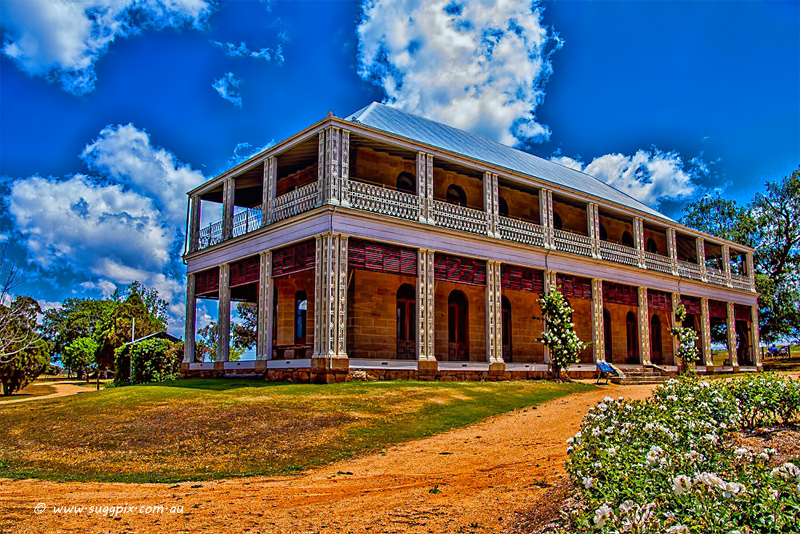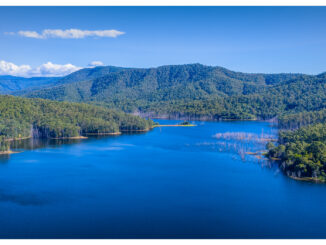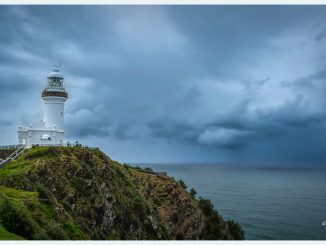
Glengallan Homestead was built in 1867-68 by John Deuchar who, with partner Charles Henry Marshall, established the famous Glengallan Merino flock and Shorthorn stud.
The breeding tradition established by Deuchar was further developed by William Ball Slade who maintained the pre-eminence of the Glengallan stud from 1873 until the property was sold in 1904. Slade also transformed Glengallan from a traditional pastoral stud property to one where intensive cultivation of lucerne and other fodder supported not only the stud stock but also wethers bought for fattening from western properties.
Further diversification included dairying and a substantial piggery, and Slade was praised by his contemporaries as the best manager on the Darling Downs. Slade was also described as the archetypal Anglo-Australian patrician of Warwick, being a patron, office-bearer, benefactor and member of numerous societies, clubs, the Masonic Lodge and Anglican Church.

Glengallan Homestead is a two-storeyed sandstone structure and is a rare example of a Queensland homestead of that period which were mainly single-storeyed timber structures. Although the homestead was built as part of a larger, uncompleted design, the grand architectural concept can be appreciated and, with its picturesque siting, the building is recognised as a landmark in the surrounding rural landscape.
The site contains archaeological remains which could provide further information concerning the living conditions on the property and the development of the homestead and associated complex of buildings from the 1840s.
The homestead and surrounding landscape provide evidence of the way of life of a large Darling Downs Station, from its establishment to eventual decline, and the building is symbolic of the power and prestige of the Darling Downs squatters in the mid to late nineteenth century.
After being uninhabited for over 70 years, Glengallan Homestead today is a tribute not only to its visionary builder and to 19th Century craftsmen, but also to the 21st Century team that brought it back to life with a delicately balanced restoration that enables the visitor to experience the best and worst of its times.

A great place to visit and take photographs.
The information above was sourced from the Queensland Heritage Register which is maintained by the Department of Environment and Heritage Protection.





Be the first to comment